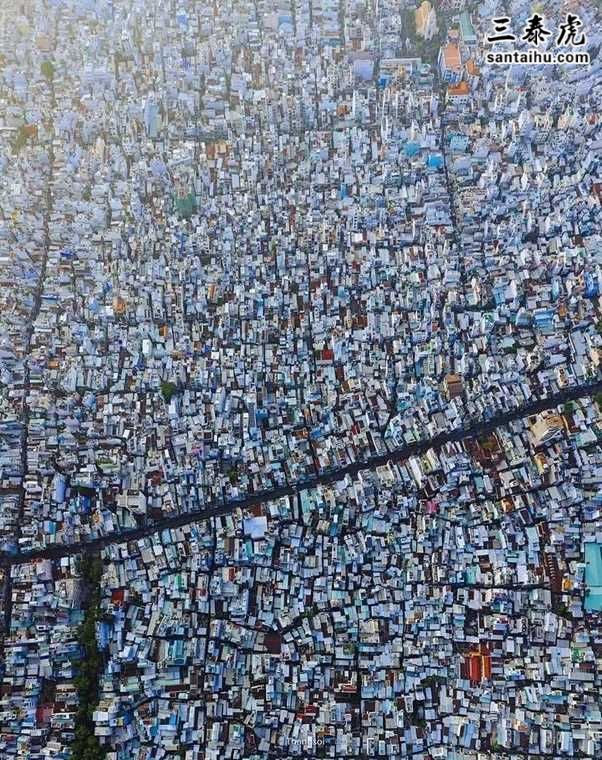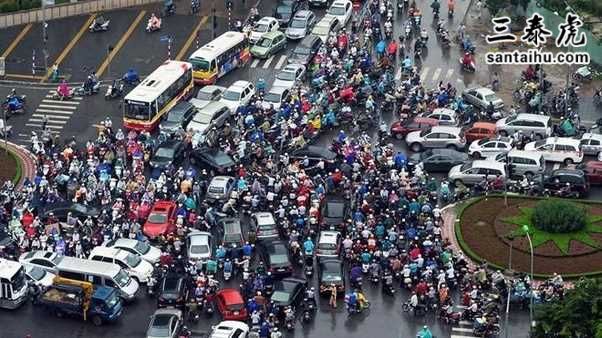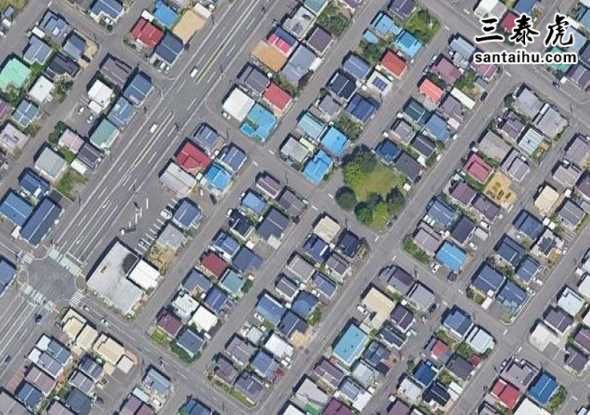Will Vietnam become a developed country in 20 years?
越南能在 20 年内成为发达国家吗?
以下是Quora网友的评论:
Assistant
Predicting whether Vietnam will become a developed country in 20 years involves considering several factors, including economic growth, infrastructure development, education, governance, and social stability. As of 2023, Vietnam has shown significant progress in these areas:
Economic Growth: Vietnam has experienced robust economic growth over the past few decades, with a shift from an agriculture-based economy to a more industrialized and service-oriented one. The country's GDP growth rate has often been among the highest in Southeast Asia.
Foreign Investment: Vietnam has become an attractive destination for foreign direct investment (FDI), particularly in manufacturing and technology. This influx of capital can help spur further economic development.
Infrastructure Development: The Vietnamese government has been investing heavily in infrastructure, including transportation, energy, and urban development, which is crucial for supporting economic growth.
Education and Workforce Development: Improving education and vocational training is essential for develo a skilled workforce that can meet the demands of a modern economy. Vietnam has made strides in education, but challenges remain.
Governance and Institutions: Effective governance and strong institutions are vital for sustainable development. Vietnam's political system and regulatory environment will play a significant role in its future trajectory.
Social Factors: Addressing social inequalities and ensuring that economic growth benefits a broad segment of the population will be important for social stability and cohesion.
While the trajectory is promising, several challenges could impede Vietnam's progress, including environmental issues, economic volatility, and geopolitical tensions. If Vietnam continues to implement effective policies and address these challenges, it has a strong chance of achieving developed country status by 2043. However, it will require sustained effort and adaptation to changing circumstances.
预测越南能否在20年内成为发达国家,得考虑好几个因素,像经济增长、基础设施建设、教育、治理水平还有社会稳定这些方面。截至2023年,越南在这些领域已经取得了显著进展:
**经济增长**:在过去几十年里,越南经济增长强劲,从以农业为主的经济模式,逐渐转变为工业化和服务业占比更高的模式。该国的国内生产总值增长率在东南亚常常名列前茅。
**外国投资**:越南已经成为外国直接投资(FDI)的热门目的地,尤其是在制造业和科技领域。这些资金的流入能进一步推动经济发展。
**基础设施建设**:越南政府一直在大力投资基础设施,像交通、能源还有城市建设这些方面,这对支撑经济增长至关重要。
**教育与劳动力发展**:提升教育水平和职业培训,对于打造一支能满足现代经济需求的技术型劳动力队伍来说,是必不可少的。越南在教育方面已经有所进步,但仍然面临一些挑战。
**治理与制度建设**:有效的治理和强大的制度,对可持续发展至关重要。越南的政治体制和监管环境,会在其未来发展道路上起到关键作用。
**社会因素**:解决社会不平等问题,确保经济增长能让广大民众受益,这对社会稳定和凝聚力很重要。
虽说越南的发展势头很有希望,但也有一些挑战可能会阻碍其进步,比如环境问题、经济波动以及地缘政治紧张局势。要是越南能继续推行有效的政策,应对这些挑战,到2043年还是很有机会达到发达国家水平的。不过,这得持续努力,并且要适应不断变化的形势。
Max Ngố
The current level of development in Vietnam is nothing miraculous, any country in Southeast Asia can achieve it.
All East Asia countries and Singapore, Japan under Meiji became developed nations under smart/good dic ships (or elite-oriented systems). If Vietnam had leaders like Minh Mang, Nguyen Truong To, Phan Chau Trinh, or even Pham Nhat Vuong about 20- 30 years ago instead of, it would be in a better position today at least, as they really wanted to learn from and copy developed countries. They had a vision for it, not just empty talk and visionless, corruption, bureaucracy and without high ethnic self-esteem.
The problem is that Vietnam did not have a true elite class right after the war to lead the country until today.
Vietnam has dic ship but you know the leaders must be smart, strong ( not being afraid to make the change and put the benefits of all country above small group of people.
you cannot expect people to sort waste just by talking about it on television. This is where a smart dic ship should step in by enacting reasonable laws, and if people fail to follow them to create a better society, they should be punished,
same as for urban planning problems. Japan/US etc are de ocratic countries, but they have much stricter laws for building normal houses than Vietnam.
越南目前的发展水平没什么神奇的,东南亚任何一个国家都能做到。
所有东亚国家以及明治时期的日本、新加坡,都是在明智/良好的统治(或者说精英导向体制)下成为发达国家的。要是越南在二三十年前能有像明命帝、阮长祚、潘周桢,甚至是潘日旺这样的领导人,而不是现在这样,那至少今天的状况会更好,因为他们真心想要向发达国家学习并效仿。他们有这方面的愿景,而不是只会空谈,毫无远见,还充斥着腐败、官僚主义,并且缺乏强烈的民族自尊心。
问题在于,自战后至今,越南一直没有一个真正的精英阶层来领导国家。
越南是有专制统治,但要知道,领导人必须得明智、强硬(敢于做出改变,将国家整体利益置于小团体利益之上)。
你不能光指望在电视上宣传宣传,就指望人们去做好垃圾分类。这时候就就该介入,制定合理的法律,如果人们不遵守以建设更美好的社会,就该受到惩罚。
城市规划问题也是一样。日本、美国等都是皿煮国家,但他们在普通房屋建造方面的法律,比越南可要严格得多。
Result:
Typical sub urban areas in Vietnam:
结论:
越南典型的城郊地区:

Transportation: It looks exactly like urban planning in Vietnam nowadays
交通状况:和越南如今的城市规划现状简直一模一样。

Whether Vietnam can become a 'better country' in the next 20 years will depend on how well the government solves these problems. Democracy is only suitable for a country where most of the people have a high LEVEL of education or Dân trí !
Typical sub urban areas in Japan:
越南能否在未来20年成为一个“更好的国家”,取决于政府解决这些问题的能力如何。民*只适合大多数民众受教育程度高或者民智开化的国家!
日本典型的城郊地区:

Khengsiong Chew
Until very recently, I thought Vietnam had a bright future, and would be the next ‘Asian tiger'. Now I am less sure. The Covid-19 pandemic exposed some of the weaknesses of the country.
In the early days of the pandemic, Vietnam relied on strict lockdown to curb the spread of the virus. The government became complacent, and was slow in securing vaccines for its people. When the Delta variant struck, Vietnam was hit hard.
Procurement of vaccines was the responsibility of the central government. Hanoi, however, blamed the local authorities for failing to control the outbreak, and had replaced the mayor of Ho Chi Minh City.
According to people familiar to the country, medical facilities in Vietnam were inadequate, which explains the high death rate in places like Ho Chi Minh City.
就在没多久前,我还觉得越南未来一片光明,会成为下一个“亚洲小虎”呢。但现在,我没那么肯定了。新冠疫情把这个国家的一些薄弱点给暴露出来了。
疫情刚开始的时候,越南靠严格的封控措施来抑制病毒传播。后来政府就有点飘飘然了,在给老百姓搞疫苗这件事上拖拖拉拉。等德尔塔变异毒株一来,越南被狠狠打击了。
疫苗采购本来是中央政府的事儿。可河内那边却怪地方政府没控制住疫情,还把胡志明市市长给撤了。
据了解越南情况的人说,越南的医疗设施不太够,这就说得通为啥像胡志明市这种地方死亡率比较高。
Zzzcat.
If China and the United States, like the Soviet Union and the United States, Vietnam may get the same kind of double investment as the two, and thus develop. But now China's rivalry with the United States is no longer about comparing investments and seeking Allies.
Vietnam has chosen the wrong route, eating at both ends. China and the US are not fools. While negotiating with the United States to attract investment, Vietnam pretended to contact China to stimulate the United States to give him more benefits. The result is that China sees all this in the eye and does not intend to really invest in Vietnam, the United States also sees everything in the eye, and the benefits to Vietnam are also pressed again and again, and a mere $2 million wants to send Vietnam.
Let's just say Vietnam's bad luck with two stingy overlords, so I'm conservative about Vietnam's future.
如果中国和美国像当年苏联和美国那样,越南或许能像当年一些国家那样获得中美双方的双重投资,进而实现发展。但如今中美竞争已不再局限于比拼投资和拉拢盟友。
越南选错了路,想要两头获利。中国和美国又不傻。越南一边与美国谈判吸引投资,一边佯装与中国接触,试图刺激美国给其更多好处。结果就是,中国把这一切都看在眼里,无意真正对越南加大投资,美国同样心里有数,给越南的好处也是一压再压,区区200万美元就想打发越南。
只能说越南运气不好,碰上两个吝啬的“大佬”,所以我对越南的未来持保守态度。
Ada Yang
I think so, because Vietnam really has great potential, and Vietnam has a large number of young people, which is the basis for their economic growth.
But there is a very critical question, which is whether Vietnam can handle the relationship with China well, because Vietnam's development cannot be separated from China, and Vietnam's manufacturing industry needs to be based on China, because Vietnam lacks a broad base of heavy industry and chemical industry.
I believe that Vietnam will become the second fast-growing socialist country outside of China.
Co LEN Vietnam!
我也这么认为,因为越南确实潜力巨大,越南有大量年轻人,这是其经济增长的基础。
但有个非常关键的问题,即越南能否处理好与中国的关系,因为越南的发展离不开中国,而且越南的制造业需要以中国为依托,毕竟越南缺乏雄厚的重工业和化工产业基础。
我相信越南会成为中国之外,第二个经济快速增长的社会主义国家。
越南加油!
Mev Shreb
I have my own definition of what makes a country developed however, and it’s generally this.
Able to build it’s own naval ships and army tanks and automobiles.
High literacy rate.
Social security programs, social safety net etc.
An average wage high enough that a person is able to afford a car, house and these things within their working life.
Alive entertainment industry (not reliant entirely on another country for an entertainment industry).
An ethical justice system, moral based laws (for example China only recognised homosexual rape as a crime of rape from 2015 onward, not a good sign, it has a lot of catching up to do).
Not seen as a cheap place for tourists to exploit with their higher currency.
Most tall buildings in cities are from domestic architects and engineers.
If a country fits all of those, in my personal opinion it means it’s developed.
By my definition, this would mean the following countries are the truly developed ones.
Sweden, Germany, Japan, South Korea, Singapore, France, Italy, UK, Canada, Spain.
不过,对于是什么造就了一个发达国家,我有自己的定义,大致如下:
1. 有能力自行建造海军舰艇、陆军坦克以及汽车。
2. 高识字率。
3. 拥有社会保障项目、社会安全网等。
4. 平均工资足够高,人们在工作生涯中能够买得起汽车、房子等。
5. 有活跃的娱乐产业(并非完全依赖其他国家的娱乐产业)。
6. 有合乎道德规范的司法体系,基于道德制定的法律(比如,中国直到2015年才将同性之间的强奸认定为强奸罪,这可不是个好迹象,还有很多要改进的地方)。
7. 不会被视为因货币汇率较低,就可让外国游客肆意消费的廉价之地。
8. 城市里大多数高楼大厦是由本国建筑师和工程师设计建造的。
在我个人看来,如果一个国家符合以上所有条件,那就意味着它是发达国家。
按照我的定义,以下这些国家才是真正的发达国家:
瑞典、德国、日本、韩国、新加坡、法国、意大利、英国、加拿大、西班牙。
Arkaneh Urairat
Between Indonesia, Thailand and Vietnam, which country will become a developed country the soonest?
Thailand would rather be the last among the THREE of your choice. We have no delight in such a competition, the feeling is mutual to my countrymen— you may take a poll and prove me wrong.
Are you confused?
Let me give my 2 cents on where I am coming from.
JAPAN is top notch in almost all aspects, the most modern country in Asia, attached with the best in almost everything under the Sun—you name it.
With SINGAPORE trailing at the second spot, the best and the first in numerous fields, I lost count.
What do Japan and Singapore have in common?
Japan was like a prodigal son, the loser of the war who turned the winner in a span of only 70 years where many mighty nation-superpowers in the past walked backward down the cliff.
Singapore was sent to the abyss by their sibling, so to speak, and came off victorious in 50 years thus making many SE Asia countries jaw drop.
From the tale of these two countries, it gives everyone in Thailand mixed feelings—what if, Thailand is rushing to be on top as a developed nation soonest— at what cost?
Looking around today in Tokyo’s subway where everyone minds their own business, mute, and lifeless, and some are in nirvana. May God be with you if you try to settle down as an expat in Japan…
在印尼、泰国和越南之间,哪个国家最快会成为发达国家?
泰国宁愿在你所选的三个国家中敬陪末座。我们对这种竞争毫无兴趣,我的同胞们也都这么想——你可以做个民意调查,来证明我是错的。
你是不是很困惑?
让我来说说我的看法。
日本在几乎所有方面都堪称一流,是亚洲最现代化的国家,几乎在世间万物上都做到极致——随便你举个例子。
新加坡紧随其后排在第二位,在众多领域都是佼佼者甚至拔得头筹,我都数不过来了。
日本和新加坡有什么共同之处呢?
日本就像一个浪子,曾经是战败国,却在短短70年里逆袭成功,而许多昔日强大的超级大国却逐渐走向衰落。
可以说,新加坡被其“兄弟”推向深渊,却在50年内取得胜利,让许多东南亚国家大跌眼镜。
从这两个国家的故事中,泰国人百感交集——要是泰国急于尽快成为发达国家,那代价会是什么呢?
看看如今东京的地铁里,每个人都只顾自己,沉默寡言,毫无生气,有些人甚至像置身世外。要是你想以外国人的身份在日本定居,愿上帝保佑你……
How about living in the garden city of Singapore?
Looking beyond the tree top and glittering facades of a skyscraper, you see the elderly pushing a cart filled with a stack of cardboards, some are cleaning toilets, while others collecting dirty plates and cutleries.
What if, a family man is out of a job for 3 months with limited savings, will he be able to keep the roof over his head? How is he going to cope with a rising cost of living that going in a fast and furious mode?
I can’t imagine if that had happened to me in Singapore.
Let’s come back to Thailand, the Land of Smiles.
THAIS will want to be what we are today, come what may. My compatriots and I find no desire to be a victim of the developed nation.
THAI SMILES and our hospitalities are the hallmark, the feeling that the world is at our feet when we have food on the table for our family and we have jobs that pay the rent …If we lose a job… “There’s fish in the water, rice in the field” we won’t die of hunger.
Let us be the last to be a developed country after Indonesia and Vietnam.
住在花园城市新加坡怎么样?
越过树梢,透过摩天大楼闪闪发光的外立面,你会看到老年人推着装满一摞摞纸板的手推车,有的在打扫厕所,还有的在收拾脏盘子和餐具。

要是一个有家室的人失业三个月,积蓄又有限,他还能保住自己的栖身之所吗?面对飞速上涨的生活成本,他又该如何应对?
我简直不敢想象这种事要是发生在我身上,在新加坡会怎样。
咱们回到泰国,这个“微笑之国”。
无论如何,泰国人都希望保持现在的样子。我和我的同胞们不想成为发达国家的牺牲品。
泰国人的微笑和好客是我们的标志,当我们能让家人有饭吃,自己有工作能付房租时,就会有一种掌控世界的感觉……要是我们失业了…… “水里有鱼,田里有稻”,我们不会饿死。
就让我们排在印度尼西亚和越南之后,最后一个成为发达国家吧。
Profile photo for Ngoc Tu
What is the likelihood that Vietnam will become a strong, developed country? If so, in what time frame will this likely happen?
First of all I will say that I'm generally a pessimistic person, and this will be a pessimistic prediction.
Vietnam has been following a very unfortunate trend: in the 3 latest centuries, we were at wars with one or many super powers: in 18th century with China, in the 19th century with France leading to us being colonized, in the 20th century again with France resulted in the country being divided in 2, and later with America leading to the country being exhausted economically and mentally, and another border war with China in 1979.
And that trend was not new but just a continual of centuries of conflict before them: civil war in 17th and 16th centuries, war against Ming dynasty in the 15th century, internal strife and downfall in the 14th century, 3 wars with Mongol in the 13th century, internal strife and political purge again in the 12th century.
And these wars were often lengthy and destructive, leaving us drained of resources to grow fast and stably.
So I reckon that the chance of Vietnam becoming a strong, developed country would depend on our ability to keep the peace, grow fast enough in that peace, to a point where even if we suffer from another war, we can recover.
越南成为一个强大的发达国家的可能性有多大?如果是这样,可能会在什么时间框架内发生?
首先我得说,我总体上是个悲观的人,而这将是一个悲观的预测。
越南一直以来都处于一种相当不幸的趋势中:在过去的三个世纪里,我们不断与一个或多个超级大国发生战争。18世纪与中国交战,19世纪与法国交战并最终沦为殖民地,20世纪再次与法国交战,导致国家一分为二,后来又与美国交战,使国家在经济和精神上都疲惫不堪,1979年还与中国爆发了边境战争。
而且这种趋势并非新出现的,只是此前几个世纪冲突的延续:16、17世纪的内战,15世纪与明朝的战争,14世纪的内乱与衰败,13世纪与蒙古的三次战争,12世纪又一次的内乱和政治清洗。
这些战争往往漫长且具有毁灭性,让我们耗尽资源,难以快速且稳定地发展。
所以我认为,越南成为一个强大发达国家的可能性,取决于我们维持和平的能力,以及在和平环境中实现足够快速发展的能力,只有发展到一定程度,即便再次遭遇战争,我们也能够恢复元气。
Until now, we have been at peace for about 40 years (since 1975), or 27 years (since 1988 when we left Cambodia). In these 40 years, we have been growing pretty fast, as the energy that was repressed by rigid central planning was released. But until now, this growth is generally perceived as unsustainable because it relies too much on: natural resources, real estate market boom, and manufacturing job for FDI sectors. In other words, we have managed to build something for ourselves, but they are not strong industries that are reliable and sustainable, globally competitive sources of income.
到目前为止,我们已经享受了约40年的和平(从1975年算起),或者说是27年(从1988年我们从柬埔寨撤军算起)。在这40年里,我们发展得相当迅速,因为被僵化的中央计划体制压抑的活力得到了释放。但时至今日,人们普遍认为这种增长不可持续,因为它过度依赖以下几方面:自然资源、房地产市场的繁荣,以及外资制造业岗位。换句话说,我们确实为自己打造了一些成果,但这些产业不够强大,既不可靠、无法持续发展,在全球范围内也缺乏有竞争力的收入来源。
All together, I believe that if in 20-30 years, some even more pessimistic person may say 5-10 years, we do not undergo a meaningful breakthrough reform to push ourselves into a more sustainable and competitive route of development, be it from the top down or from the ground up, we may find ourselves at a disheartening position of economic mediocrity and bitter conflicts. In other words, we would have missed the decades of peace between 2 conflicts, and we may have to start over again when the next conflict ends to become a developed country.
总的来说,我认为,如果在未来20 - 30年,甚至有些更悲观的人觉得是5-10年内,我们不能进行意义深远的突破性改革,从而走上一条更具可持续性和竞争力的发展道路(无论是自上而下还是自下而上的改革),那么我们可能会陷入令人沮丧的境地:经济平庸,还面临诸多棘手矛盾。也就是说,我们可能会错过两次冲突之间这几十年的和平期,等到下一次冲突结束后,若想成为发达国家,或许又得一切从头开始。
iao Wen
According to some optimistic analysis, Vietnam can achieve per capita GDP of more than 10,000 US dollars in 20 years.
If Vietnam can turn all its geopolitical and economic opportunities into its advantages, I think it may do better than this forecast.
But it is not easy, which requires the Vietnamese government to walk on the cutting edge and stay awake at all times.
As to whether Vietnam can replace Japan and become a real top club player. I think it will take longer and more ambitious plans.
根据一些乐观的分析,越南能够在20年内实现人均国内生产总值超过1万美元。
如果越南能将其地缘政治和经济机遇都转化为自身优势,我觉得它可能会比这一预测表现得更好。
但这并非易事,这要求越南政府始终走在前沿,并时刻保持清醒。
至于越南能否取代日本,成为真正的顶尖经济体,我认为这需要更长的时间和更具雄心的规划。
Zayne Chu
Will Vietnam become a developed country before China?
If you want you to appear smart, the most important thing to do is not to try to predict the future.
If a person today went back to the United States in 1982, what would you see?
High double-digit inflation
8 million people out of work
A national debt of over $1 trillion
A steep recession that broke the records of the Great Depression
The mighty Soviet army was unstoppable in Afghanistan
The super-rich Japanese are buying up America
Meanwhile, your U.S. president is an actor?
What would you think? Is America "about to collapse"?
If this person had told Americans at the time that in 10 years the Soviet Union would collapse, Japan would be in an inexorable recession and stagnation, and America would bounce back to the top in just one year under that actor president... This man would probably be committed to a mental institution.
Yes, our world is such a wonderful place. It's amazing that these things do happen.
越南会先于中国成为发达国家吗?
如果你想显得明智,最重要的是别试图去预测未来。
要是一个生活在当下的人回到1982年的美国,会看到什么呢?
- 高达两位数的通货膨胀率
- 800万人失业
- 超过1万亿美元的国债
- 一场打破大萧条纪录的严重经济衰退
- 强大的苏联军队在阿富汗势不可挡
- 富得流油的日本人正在大肆收购美国资产
与此同时,你们的美国总统还是个演员出身的人呢。
你会怎么想?会觉得美国“即将崩溃”吗?
要是这个人当时告诉美国人,10年后苏联会解体,日本将陷入不可阻挡的衰退与停滞,而美国在这位演员出身的总统领导下,仅用一年时间就能重回巅峰……这个人很可能会被送进精神病院。
没错,我们的世界就是如此奇妙。这些事情真的发生了,实在令人惊叹。
I'm not even using the example of how the Chinese of the time imagined modern China. This is in fact even crazier...
Vietnam did not lack the conditions for economic success. Plenty of labor, good basic education, good government organization, the possibility of building a lot of good ports due to the narrow coastal country, a lot of basic manufacturing and investment transferred from China, the hard work and desire for wealth characteristic of Confucian cultural circles...
And Vietnam is not as big as China. This means that there are not as many conflicts and problems accumulated during Vietnam's rapid growth. At the same time, Vietnam has enough people to cultivate a solid manufacturing base.
We might also want to consider that the US-led group of developed countries might invest more resources in a strategy to suppress China. This would also be beneficial to Vietnam.
我甚至都没拿当时的中国人如何想象现代中国举例呢。实际上,这事儿更疯狂……
越南并不缺少经济成功的条件。劳动力充足,基础教育良好,政府组织得力,因其国土狭长且沿海,有条件建设众多优良港口,大量基础制造业和投资从中国转移而来,还有儒家文化圈特有的勤劳致富的特质……
而且越南没有中国那么大。这意味着越南在快速发展过程中积累的矛盾和问题没那么多。同时,越南有足够的人口来培育坚实的制造业基础。
我们或许还得考虑到,以美国为首的发达国家集团可能会投入更多资源来实施抑制中国的战略。这对越南来说也可能是有利的。
The process of becoming a developed country is not linear. The higher the level of economic development, the less room there will be for exploiting opportunities, and the economic growth rate will naturally slow down. China does have a great advantage of scale and potential, but the resistance and difficulties it faces will also rise exponentially. It is far easier for the world market to accommodate a developed country with a 100 million level population than a developed country with more than a billion people.
So, the possibility certainly exsts. I prefer to think that getting the whole of China to the level of a developed country is much more difficult than growing a medium-sized country like Vietnam into a developed country.
We need to understand that economic development is not, and should not be, a "race", it is not a zero-sum game. Each country should do what it can to make life better for its people. A more open economic environment and more consumption are opportunities for every country, not obstacles.
成为发达国家的进程并非一帆风顺、呈线性发展。经济发展水平越高,可利用的机会空间就越小,经济增长率自然会放缓。中国确实在规模和潜力方面具有巨大优势,但它面临的阻力和困难也会呈指数级上升。对于世界市场而言,接纳一个人口在1亿左右的发达国家,远比接纳一个人口超10亿的发达国家要容易得多。
所以,越南先于中国成为发达国家的可能性当然是存在的。我更倾向于认为,让整个中国达到发达国家水平,要比把越南这样的中等规模国家发展为发达国家困难得多。
我们需要明白,经济发展不是,也不应该是一场“竞赛”,不是零和博弈。每个国家都应尽其所能,让本国人民生活得更美好。更开放的经济环境和更多的消费,对每个国家来说都是机遇,而非阻碍。
此文由 三泰虎 编辑,未经允许不得转载!:首页 > 资讯 » 越南能在20年内成为发达国家吗,会比中国先成为发达国家吗
 印度担心如果开放,进口商品会大量涌入,越南的成功给印度带来了哪些真正的教训
印度担心如果开放,进口商品会大量涌入,越南的成功给印度带来了哪些真正的教训 为什么菲律宾输给了越南,现在排名东南亚第6
为什么菲律宾输给了越南,现在排名东南亚第6 中国投资的新运河,造成柬埔寨和越南的关系紧张
中国投资的新运河,造成柬埔寨和越南的关系紧张 世界银行:印度制造业输给了越南和孟加拉国等较小的竞争对手
世界银行:印度制造业输给了越南和孟加拉国等较小的竞争对手 如何成为发达国家,IMF副总裁吉塔·戈皮纳特给印度指明了一条道路
如何成为发达国家,IMF副总裁吉塔·戈皮纳特给印度指明了一条道路 莫迪向选民打包票:2047年印度成为发达国家,并承诺将印度打造成全球制造业强国
莫迪向选民打包票:2047年印度成为发达国家,并承诺将印度打造成全球制造业强国 为什么美国会输掉越南战争
为什么美国会输掉越南战争 印度在哪些方面比其他发达国家更胜一筹
印度在哪些方面比其他发达国家更胜一筹